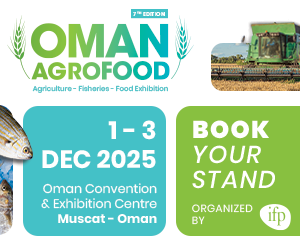Seawater farming, or saline agriculture, is a groundbreaking method that utilizes seawater for irrigation, enabling crop cultivation in arid and saline environments. This innovative approach addresses key challenges such as freshwater scarcity, food security, and sustainability by growing salt-tolerant plants, or halophytes, in a blend of seawater and freshwater. Crops such as quinoa, barley, kale, and spinach, which naturally resist high salinity, thrive in these conditions. Seawater farming also improves soil quality, making it a valuable tool for sustainable agriculture in dry and coastal regions.
A major advancement in this field is the Seawater Greenhouse project, which mimics the natural water cycle by evaporating seawater and capturing it as freshwater through condensation. A successful 2004 pilot project in Oman, in collaboration with Sultan Qaboos University, showcased its potential. Similar technologies have enabled desert farming in the UAE, where solar-powered desalination supports the cultivation of fruits and vegetables. In Australia, Sundrop Farms integrates hydroponics and aquaponics to grow 15% of the country’s tomatoes, reducing freshwater use and demonstrating the scalability of seawater farming. Other global examples include Somaliland’s arid land greenhouses and Jordan’s Sahara Forest Project, which combines seawater and solar power to grow crops and rehabilitate deserts.
Oman itself has seen significant innovations, such as the 2019 Grow Dome project in Sohar, a partnership between the University of Sheffield and Sohar University. The project uses advanced, soilless farming techniques powered by solar desalination to convert seawater into freshwater for agricultural use. Globally, companies like Tekmara in Florida and Nemo’s Garden in Italy are experimenting with solar desalination and underwater farming, further advancing the field.
With its extensive coastline and arid climate, Oman is uniquely positioned to benefit from seawater farming. Integrating aquaculture and agriculture along coastal regions could create a circular economy, where nutrient-rich water from fish farming supports crop growth. By leveraging solar desalination technologies, Oman can conserve precious freshwater resources while expanding seawater irrigation. These efforts could build upon previous successful projects, setting the stage for future advancements in the country.
Omani entrepreneurs have numerous opportunities to capitalize on seawater farming. Eco-friendly materials such as biocomposites, bio-bricks, and green roofs made from halophytes could be marketed to sustainability-conscious developers. Educational farms offering tours and hands-on experiences in seawater farming could generate income while raising public awareness. Additionally, businesses aiming to enhance their environmental sustainability could source salt-tolerant crops for new products, or use halophytes to produce sustainable animal feed.
This approach aligns with Oman’s Vision 2040, which emphasizes sustainable development and reducing environmental impacts. Seawater farming holds the potential to boost food security, create jobs, drive economic growth, and contribute to global environmental sustainability, positioning Oman as a leader in resilient agriculture for the future.











































































